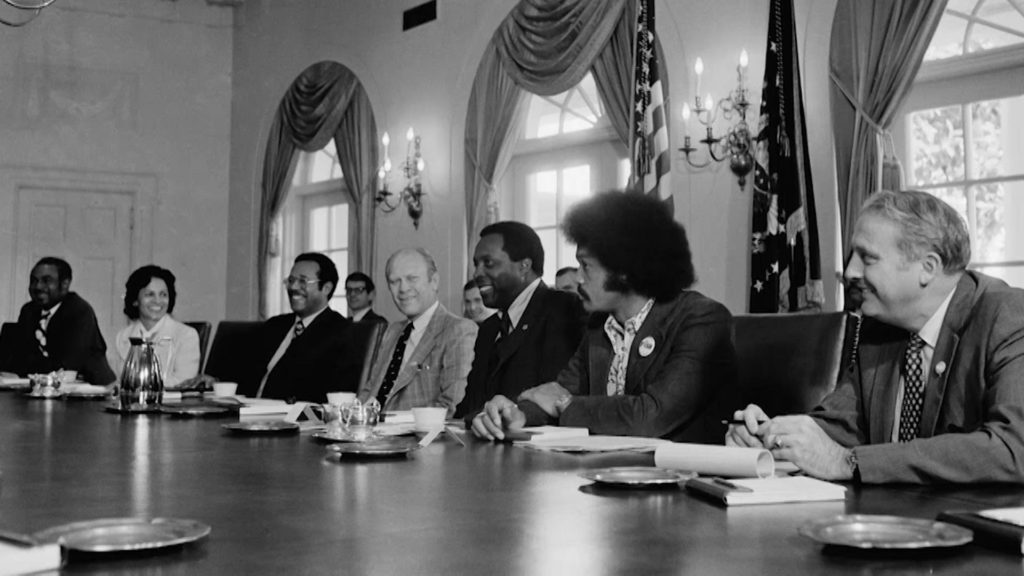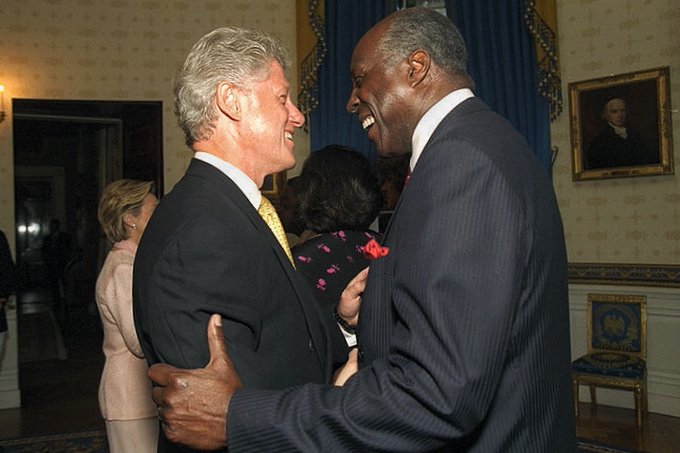He grew up in a public housing project during segregation and became a national power broker who rose to the pinnacles of politics, business and law while leading some of America’s greatest civil rights organizations. Chicago and the nation this week are remembering and celebrating the powerful career, life and legacy of civil rights icon Vernon Jordan, who died Monday, March 1, with his wife and daughter by his side. He was 85.
The cause of death was not released.
From Chicago to Atlanta to Washington, D.C., Jordan had a tremendous impact on the lives of Blacks from all walks of life.
In his lifetime, he steered the careers of Black corporate executives and ambitious Wall Street bankers who faced tremendous hurdles in lily white boardrooms and offices.
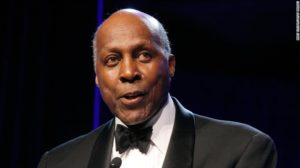
Jordan was a close advisor to a sitting U.S. president. He held back white mobs during civil rights protests and boosted the power and profile of the National Urban League, the NAACP, the Southern Christian Leadership Conference and the United Negro College Fund.
At the end of his life, Jordan had a more far-reaching impact on Black America than many Black leaders achieve in their careers.
In Chicago, he was part of a circle of the city’s Black elite that included former White House advisor Valerie Jarrett and Ariel Investments CEO and Founder John Rogers. He held 55 honorary degrees and earned numerous awards for his civic leadership and contributions to Black America.
Former President Bill Clinton, whom Jordan advised during Clinton’s term in the White House, tweeted “Vernon Jordan was a wonderful friend to Hillary, Chelsea, and me, in good times and bad. We worked and played, laughed and cried, won and lost together. We loved him very much and always will.”
National Urban League President and CEO Marc H. Morial said in a statement, “The nation has lost one of its greatest champions of racial and economic justice.” He added that Jordan “was a transformational leader who brought the movement into a new era. He was a personal mentor and dear friend. His passing leaves a tremendous void that can never be filled.”
NAACP President Derrick Johnson tweeted, “Today, the world lost an influential figure in the fight for civil rights and American politics. An icon to the world and a lifelong friend to the NAACP, his contribution to moving our society toward justice is unparalleled.”
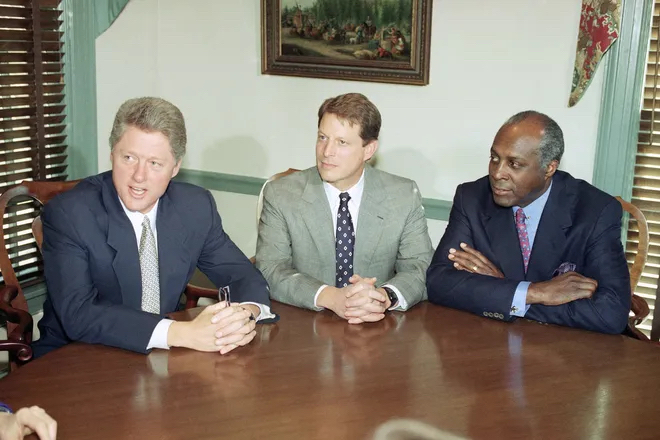
Georgia Democrat and political activist Stacey Abrams said in a statement that Jordan “battled the demons of voter suppression and racial degradation, winning more than he lost.”
During WVON radio host Perri Small’s show on Tuesday, March 2, former corporate lawyer and The HistoryMakers founder and CEO Julieanna Richardson gave an emotional interview. She struggled to share her thoughts and memories of a man who had supported her national organization that documents the historical achievements of thousands of prominent Blacks across the country, including Jordan.
“There’s not a historical point in the last 60 years that Vernon did not touch,” she said. “Any critical decision that affected the Black community he would have been consulted with. He was very, very important to our project. We lost a great one today.”
Rogers, whose mother, the late Jewel Lafontant, worked closely with Jordan as they sat on the boards of corporations, said on WVON that Jordan was a “superstar” who mentored and invited him to important dinner receptions that led to business and career opportunities.
“He wanted me to be involved [in the corporate world]. He looked out for the next generation,” Rogers said. Rogers also said that Jordan had “extraordinary leadership skills. Everyone wanted to be around him.”
One WVON caller, who identified himself as “Brother Lee,” shared how he met Jordan during an event at the Palmer House Hilton in 1980. Lee said he had the honor of picking Jordan up at O’Hare Airport. Jordan was 6’4” and “He looked so regal looking. He had this presence about himself. He knew he was somebody important.”
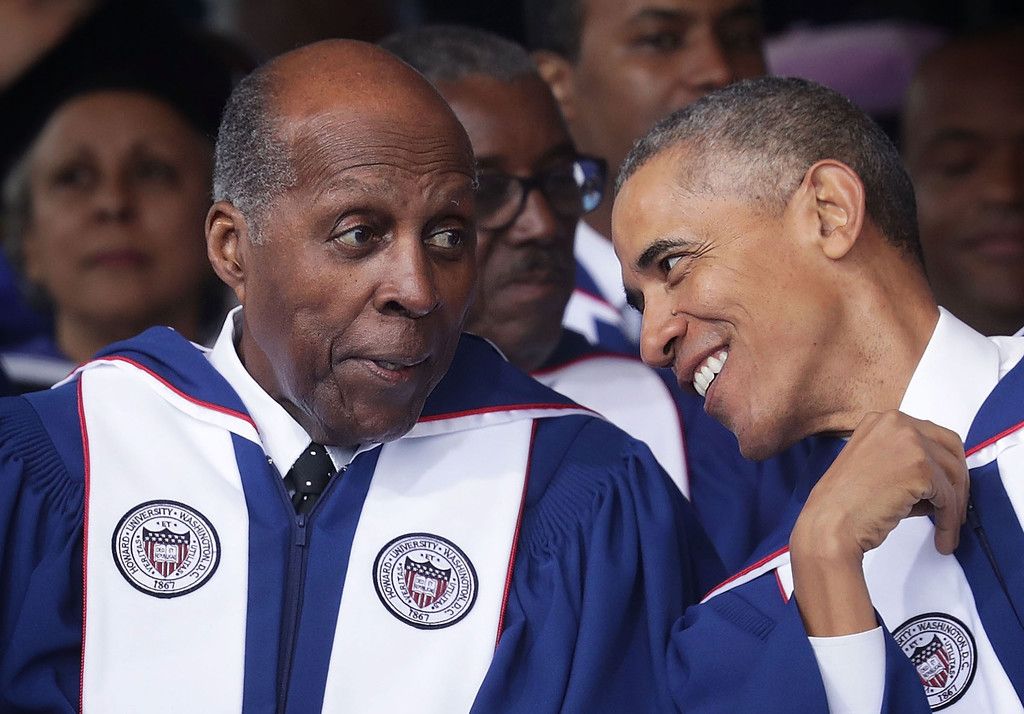
Jordan’s life didn’t start off as important. He was born on August 15, 1935, in a public housing project in Atlanta when the city was largely segregated.
He graduated with honors from David T. Howard High School in 1953 and attended DePauw University in Greencastle, Indiana, where he was the only Black student in his class. At DePauw, Jordan participated in the student senate, won statewide honors in speaking competitions, played basketball and graduated in 1957. He then entered Howard University School of Law, receiving his J.D. in 1960. While there, he married his first wife, Shirley Yarbrough.
Jordan returned to Atlanta, starting his legal career working with the Civil Rights Movement. In 1961, Jordan became Georgia field secretary for the National Association for the Advancement of Colored People (NAACP). Under his leadership, Jordan built new chapters, coordinated demonstrations and boycotted businesses that would not employ Blacks.
That same year, he helped organize the integration of the University of Georgia and personally escorted student Charlayne Hunter through a hostile white crowd.
Over the next 10 years, Jordan held various positions as a civil rights advocate. He also served as the director of the Voter Education Project for the Southern Regional Council; head of the United Negro College Fund; and as a delegate to President Lyndon B. Johnson’s White House Conference on Civil Rights.
In 1971, following the tragic drowning death of Whitney Young Jr. in Nigeria, Jordan was named the fifth president of the National Urban League. He was the first lawyer to head the Urban League, which had traditionally been led by social workers. Under Jordan’s leadership, the Urban League grew by an additional 17 chapters. The organization’s annual budget topped more than $100 million. Jordan expanded the Urban League’s focus to voter registration drives and resolving tensions between Blacks and police departments across the country.
On May 29, 1980, Joseph Paul Franklin, a white supremacist who targeted Blacks and Jews in a cross-country killing spree from 1977 to 1980, attempted to kill Jordan. He shot Jordan with a hunter’s rifle outside Jordan’s hotel after he returned from dinner. Jordan recovered three months later after five surgeries. He was visited by President Jimmy Carter during his stay in the hospital.
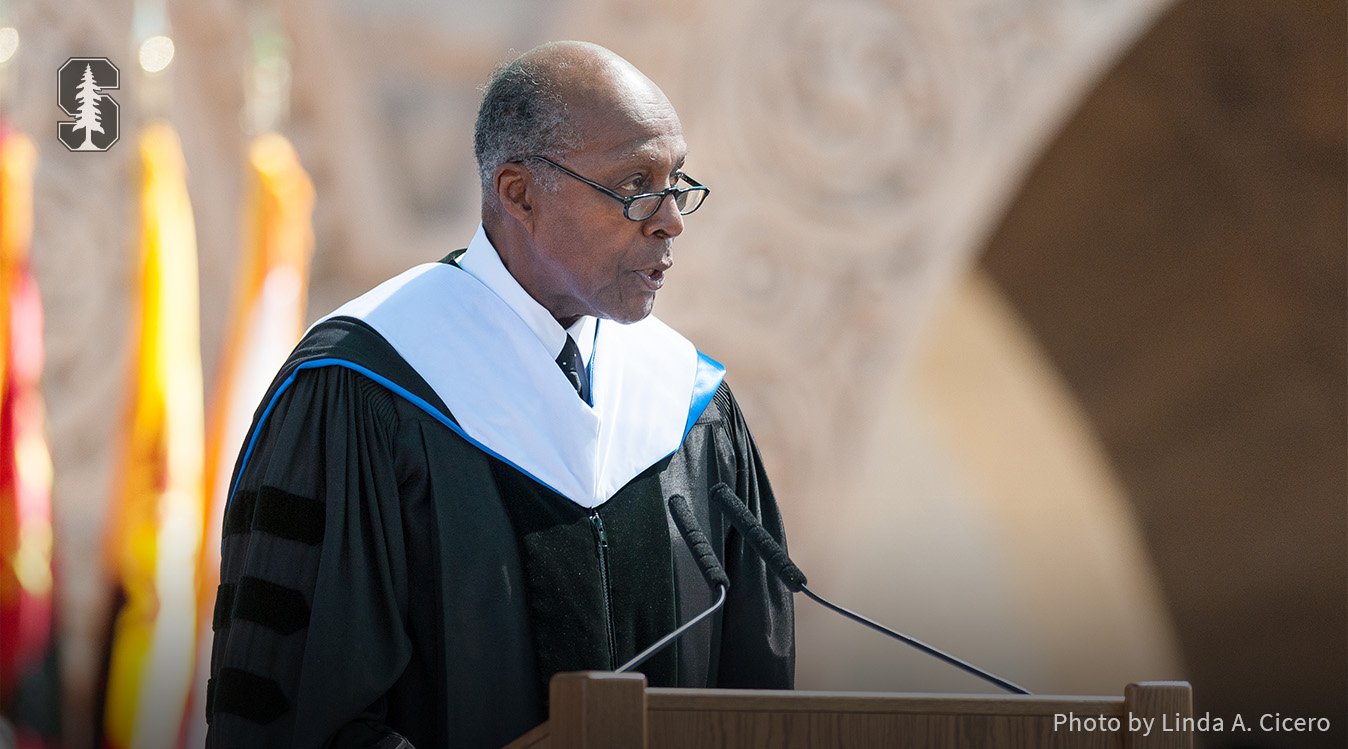
“I’m not afraid and I won’t quit,” Jordan told Ebony Magazine after the shooting.
Franklin, who later admitted to the assassination attempt, was put to death in 2013 for another slaying in Missouri.
In 1981 Jordan resigned from the National Urban League to take a position as legal council with the Washington, D.C. office of the prestigious law firm of Akin, Gump, Strauss, Hauer and Feld. His practice included corporate, legislative and international clients.
In the 1970s Jordan began a friendship with Clinton, whom he met when Clinton was a young politician in Arkansas. Though Jordan advised Clinton on political and social matters, he held no official title at the White House. He pursued the opportunity to become the nation’s first Black Secretary of State and advised Clinton to pass the NAFTA agreement in 1993.
He later served as a partner in the investment firm of Lazard Freres & Company in New York.
“I believe that working with the Urban League, the NAACP, PUSH and SCLC is the highest form of service that you can perform for Black people,” Jordan said in a December 1980 interview in Ebony Magazine. “And if you serve Black people you serve the country as well. So, if I do a good job here, the Black people are not the only beneficiary; so is the country. The country has a vested interest in Black people doing well.”
In 1977, Jordan received the Alexis de Tocqueville Award from the United Way of America for his dedication to volunteerism. In 2001, Jordan published his autobiography, Vernon Can Read! to widespread praise. He also authored a weekly newspaper column syndicated to more than 300 newspapers and served as a frequent television guest and commentator.
